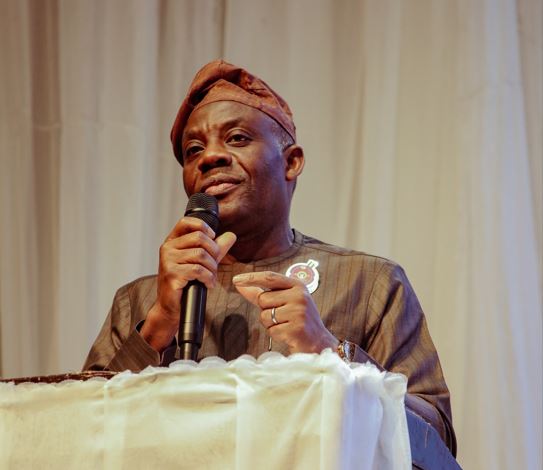The Minister of Education, Dr. Morufu Alausa, has appealed to labor unions in the education sector to prioritize the welfare of Nigerian students and avoid strike actions as a first approach in advocating for their demands. Dr. Alausa made this call during the opening of the 359th Quadrennial National Delegates Conference of the Senior Staff Association of Nigerian Universities (SSANU) in Abuja on Wednesday.
Alausa acknowledged the unions’ frustrations over the government’s history of unfulfilled agreements, yet reassured attendees that President Bola Tinubu’s administration is committed to honoring its promises. Emphasizing the President’s commitment to long-term, challenging decisions for national improvement, he said, “President Bola Tinubu is a democrat who will fulfill the commitments he has made. He has always stated, ‘I will take the difficult decisions.’”
Reflecting on economic challenges, Alausa pointed out that previous policies on fuel subsidies and exchange rates had strained national finances, benefiting primarily the wealthy and limiting funds for critical sectors like education. He explained, “The subsidies cost Nigeria nearly $1 billion daily, and an additional $500 million was spent monthly on artificially supporting the exchange rate. These were unsustainable policies that diverted funds from sectors in need, such as education.”
Dr. Alausa urged labor unions to give the government time and engage in mutual, respectful bargaining. He mentioned the establishment of a committee led by respected Nigerians, including former Head of Service, Alhaji Yahaya Ahmed, to negotiate with the unions. “Let us focus on our children’s future and collaborate to keep them in school,” he stated, assuring the unions that the government was actively addressing their grievances, including the recent request to release part of the withheld allowances for SSANU members.
Also speaking at the event, Ayuba Wabba, former President of the Nigeria Labour Congress, expressed frustration over repeated breaches of agreements as a major factor driving strikes. Wabba called for reforms in the collective bargaining system to improve trust and transparency, emphasizing the financial and social costs of strikes, such as the economic impact of the 2012 petroleum subsidy strike.
Both officials highlighted the need for trust, transparency, and a collaborative approach to address long-standing issues affecting the educational sector and, ultimately, Nigerian students.

